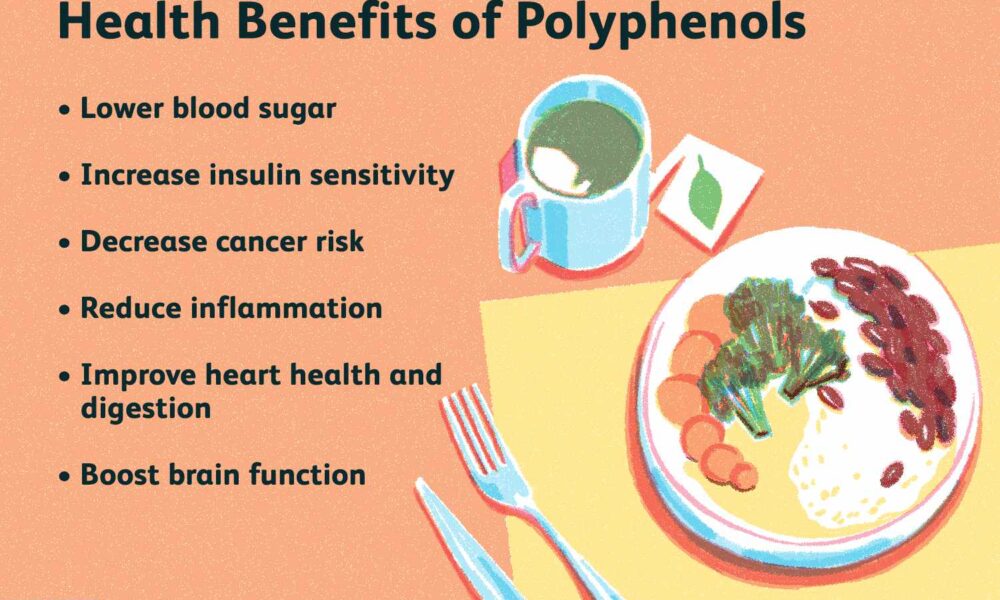- Home
- About
- Portfolio
Crush the Match – Medical School and Residency Platform
Food¢ense – Curbing Childhood Obesity and Food Waste
HealthStack – Shared and Jailed HIPAA Hosting $50
Marta Care – Let Us Help When You Can’t
MD Idea Lab – We Build Prototypes for Doctors
Nervcell – The Healthcare Web Browser
Patient Keto – Personalized Keto Medicine and Telehealth
SwipeChart – Rapid EMR Interface
Treatment Scores – Quantifying the Science of Medicine
Treatments – Diagnosed. Now What?
VIDRIO – Google Glass and EMR Interface
- Blog
- Contact
- Home
- Warp Core Health
- Blog
- Biochemistry
- Unleashing the Potential of Polyphenols: Reversing Metabolic Syndrome Naturally
Unleashing the Potential of Polyphenols: Reversing Metabolic Syndrome Naturally
Introduction: Metabolic syndrome poses a significant threat to cardiovascular health and overall well-being. However, emerging research suggests that the natural compounds known as polyphenols may hold the key to reversing metabolic syndrome and promoting better health. Abundant in various fruits, vegetables, whole grains, nuts, and beverages like tea and coffee, polyphenols offer numerous health benefits. In this article, we will delve into the importance of polyphenols in combating metabolic syndrome and explore how they can be incorporated into a healthy lifestyle.
- Combating Inflammation and Oxidative Stress: Polyphenols are renowned for their potent antioxidant and anti-inflammatory properties. By neutralizing harmful free radicals and reducing chronic low-grade inflammation, these compounds address the root causes of metabolic syndrome. Including polyphenol-rich foods in your diet can help fortify your body’s defense against oxidative stress and inflammation, thereby reducing the risk of developing metabolic abnormalities.
- Improving Insulin Sensitivity: Insulin resistance is a hallmark of metabolic syndrome, characterized by diminished cellular response to insulin. Polyphenols have shown promise in enhancing insulin sensitivity, enabling cells to efficiently absorb glucose from the bloodstream. By improving insulin sensitivity, polyphenols help regulate blood sugar levels and reduce the risk of developing type 2 diabetes, a common consequence of metabolic syndrome.
- Lowering Lipid Levels: Polyphenols have been found to possess lipid-lowering effects, particularly by reducing LDL cholesterol (the “bad” cholesterol) and triglyceride levels, while increasing HDL cholesterol (the “good” cholesterol”). Dyslipidemia, an abnormal lipid profile, is a significant component of metabolic syndrome. By incorporating polyphenol-rich foods into your diet, you can restore a healthier lipid profile, reducing the risk of cardiovascular disease associated with metabolic syndrome.
- Managing Blood Pressure: Hypertension, or high blood pressure, is prevalent in individuals with metabolic syndrome. Polyphenols have demonstrated the ability to lower blood pressure through various mechanisms. They promote the production of nitric oxide, a compound that relaxes blood vessels, leading to improved blood flow and reduced blood pressure. Additionally, certain polyphenols possess diuretic properties, aiding in the excretion of excess sodium and water, further contributing to blood pressure regulation.
- Modulating Gut Health: Emerging research suggests that polyphenols can influence the composition and activity of the gut microbiota, the complex community of microorganisms residing in our digestive system. A healthy gut microbiota plays a crucial role in maintaining metabolic balance and overall well-being. Polyphenols can act as prebiotics, nourishing beneficial bacteria and promoting a diverse and balanced gut microbiota. This interaction between polyphenols and the gut microbiota may contribute to improving metabolic parameters associated with metabolic syndrome.
Conclusion: Polyphenols offer a promising avenue for reversing metabolic syndrome and improving overall health. By incorporating polyphenol-rich foods into your diet, you can harness their antioxidant, anti-inflammatory, insulin-sensitizing, lipid-lowering, blood pressure-regulating, and gut microbiota-modulating properties. Remember that a holistic approach, including regular physical activity, weight management, and professional guidance, is crucial in managing metabolic syndrome effectively. Embrace the power of polyphenols and embark on a journey towards a healthier, metabolic syndrome-free life.
Author: Stephen Fitzmeyer, M.D.
Physician Informaticist
Founder of Patient Keto
Founder of Warp Core Health
Founder of Jax Code Academy, jaxcode.com
Connect with Dr. Stephen Fitzmeyer:
Twitter: @PatientKeto
LinkedIn: linkedin.com/in/sfitzmeyer/
Recent Posts
- Protected: Warp Core Health: Building a Custom AI Model for Transforming Healthcare
- The Intersection of Healthcare, AI, Clinical Informatics, and Machine Learning
- Accessing Siloed EMR Systems with FHIR: Connecting to Multiple EMRs
- How AI and Informatics Are Transforming Healthcare
- How AI Can Transform Healthcare Applications
Categories
- ApoB
- Artificial Intelligence
- Autophagy
- Biochemistry
- Biomedical Informatics
- Biostatistics
- Blood Glucose
- CAC
- Carbs
- CCD
- CDA
- Clinical Informatics
- Coding Bootcamp
- Coronary Artery Disease
- COVID-19
- Cybersecurity
- Data Science
- Diabetes
- Diet
- EHS
- EMR
- Epidemiology
- Evidence Based Medicine
- Fats
- FHIR
- Fiber
- Generative AI
- Global Health
- Health Administration
- Health Informatics
- Health IT
- HIPAA
- HL7
- Hyperglycemia
- Hypoglycemia
- ICD 10
- Intermittent Fasting
- Ketogenic Diet
- Machine Learning
- Macronutrients
- MCT Oil
- Metabolic Health
- Metabolic Syndrome
- Minerals
- Mitochondria
- MySQL
- Neurology
- Nutritional Ketosis
- Nutritional Neurology
- Nutritional Psychiatry
- PHP
- PHR
- Programming
- Prompt Engineering
- Proteins
- Prototypes
- Public Health
- Python
- Recipes
- Sleep Health
- Stroke
- Uric Acid
- Vegan and Vegetarians
- Vitamin D
- Vitamin K2
- Vitamins

